Turning your head too fast or straining on the toilet could lead to fainting. Here’s why
The fainting brought on by abrupt head turning is termed carotid sinus hypersensitivity or CSH, while vasovagal syncope could be the cause of your blacking out on the toilet.

Two arteries in your neck play a part. (Photo: iStock/Alex Liew)
Real life can seem more bizarre than reel life. Take everyday activities such as straining to make a bowel movement in the bathroom or even turning your head too abruptly. Believe it or not, those very actions could cause you to faint.
For Mavis Lee (not her real name), 26, it was the latter action that nearly got her unconscious back in primary school. “I remember it was during the flag-raising ceremony. I heard someone call my name just as we were reciting the national pledge. I whipped my head around, even though we were all supposed to stand at attention. That was when it happened”.
The product executive likened the sensation to “something snapping in my neck” and “my vision started to blur out".
“Just imagine the lightheadedness and fuzzy vision you get from standing up too quickly but fast-forward,” she said.
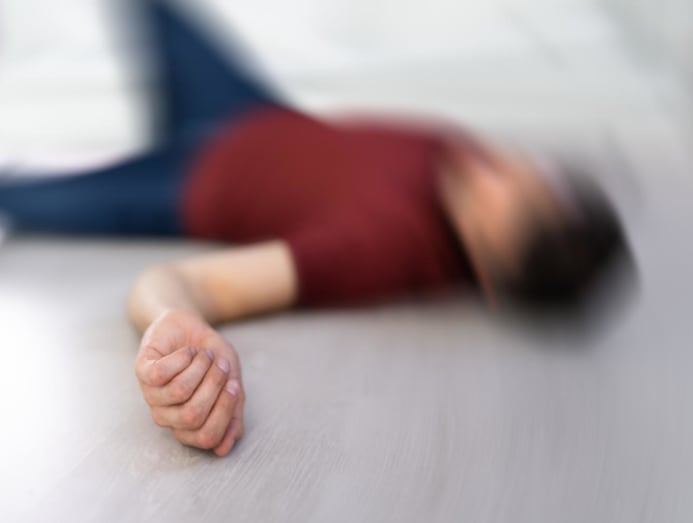
Her frantic classmates caught her just as she started swaying and she was brought inside to recover. “I wasn’t completely out but I was very giddy and lightheaded. And I remember my neck was so sore, I couldn’t turn my head properly for a week or so. It felt like a bad neck cramp you get from sleeping poorly the night before,” she said.
WHAT HAPPENED?
Lee did not seek treatment or get herself diagnosed as the symptoms resolved over time. But her experience could well be triggered by the arteries in her neck known as carotid arteries.
These vessels, one on each side of the windpipe, supply blood to the brain, according to Dr Ramani NV, a specialist and consultant in neurology at Raffles Neuroscience Centre.
Each carotid artery pumps about 40 per cent of the blood that reaches your brain, so you’re looking at 80 per cent in total. The rest of the blood, said Dr Ramani, is supplied by the vertebral arteries at the back of the neck.
Blood doesn’t simply free-flow up your neck and into your head, or you’d suffer from stroke each time you get stressed, exercise or whenever your heart rate and blood pressure increase.
Located near your voice box is the carotid sinus, which senses and regulates the blood pressure in both carotid arteries, said Assistant Professor Yeo Wee Tiong, a senior consultant with National University Heart Centre, Singapore’s Department of Cardiology.
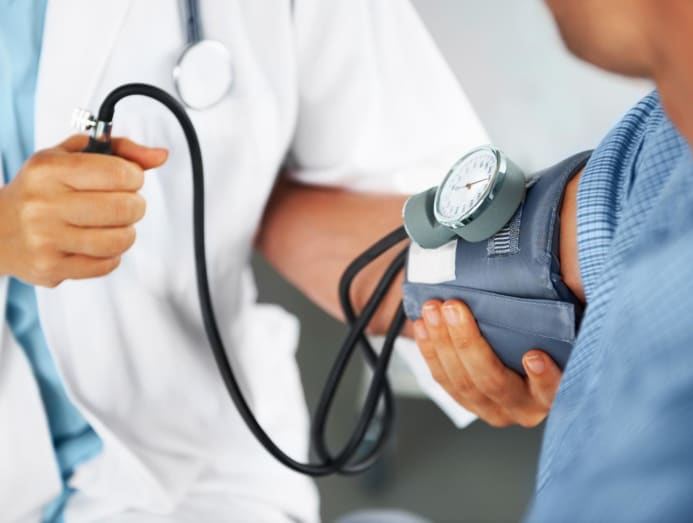
The carotid sinus does that by sensing the stretching that occurs in the walls of the carotid arteries when blood pressure is high, said Dr John Wang, a general surgeon specialising in vascular and endovascular surgery at PanAsia Surgery.
When a stretch is detected, receptors signal your nervous system to tone down your body’s “fright, fight or flight” response – and in turn, bring down your heart rate and blood pressure, he said.
But in individuals with a “sensitive” carotid sinus, it may result in fainting instead. “For example, turning one’s head abruptly or wearing a tight collar can make the body ‘think’ that the blood pressure is high. This then leads to changes that lower the blood pressure and heart rate. As a result, blood circulation is compromised and this leads to fainting spells,” said Asst Prof Yeo.
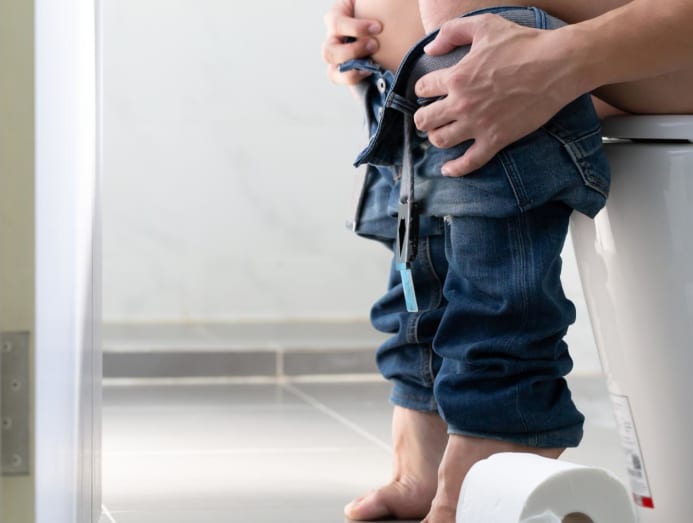
Strained bowel movements is another way that could cause you to lose consciousness. The bathroom action stimulates the parasympathetic nervous system and vagus nerve, said Dr Ramani, and could slow down your heart rate so much that it causes insufficient blood flow to the brain, and thus, fainting.
HOW COMMON ARE THESE CONDITIONS?
The fainting brought on by abrupt head turning is termed carotid sinus hypersensitivity or CSH, while vasovagal syncope can be the cause of your blacking out on the toilet.
CSH is not common at all, the experts concurred, at least not in Singapore. “The incidence of CSH reported in the United States is 35 to 40 cases per million persons per year,” said Asst Prof Yeo. “Based on this, it is estimated that there may be about 200 cases a year locally.”
Men, more than women (four to one), tend to have CSH, he continued. “As CSH relates to the body’s ability to regulate blood pressure, any medical conditions that affect this system can predispose individuals to CSH.” This includes chronic conditions such as hypertension, coronary artery disease, diabetes mellitus and neurologic conditions such as Parkinson's disease and dementia.
As for vasovagal syncope, one in three people is said to experience it at least once in their lifetime, according to Cleveland Clinic, though not always by straining in the bathroom. Vasovagal syncope is a reflex reaction to something happening around you but it comes on too strong or at the wrong time such as strong emotions, exhaustion or the sight of certain things such as blood, needles or medical instruments.
“In people under 40, vasovagal syncope causes about 85 per cent of all fainting instances. In older adults, it makes up about half of those cases,” the website noted.
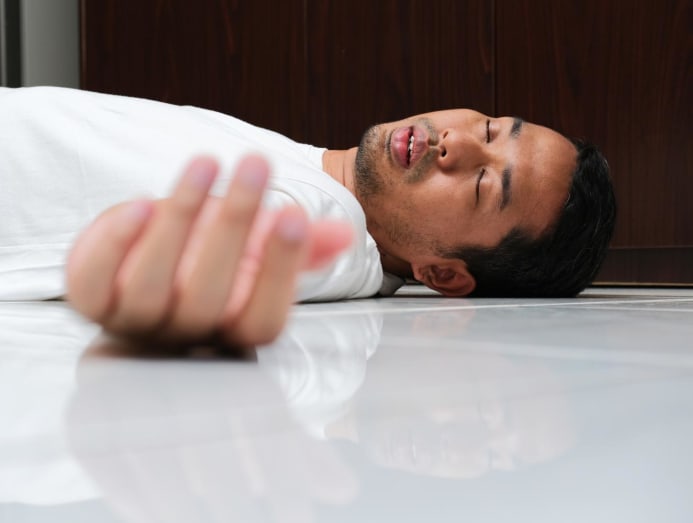
SHOULD YOU AVOID NECK MASSAGES THEN?
If the carotid arteries in the neck play a part in causing fainting spells, would it be prudent to forgo neck massages the next time you’re at the spa? If you’re diagnosed with CSH, you should definitely instruct your masseuse to avoid touching your neck altogether, said Dr Wang.
“Even for normal individuals, it is not recommended to exert external pressure on both carotid arteries simultaneously as it can lead to fainting,” he said.
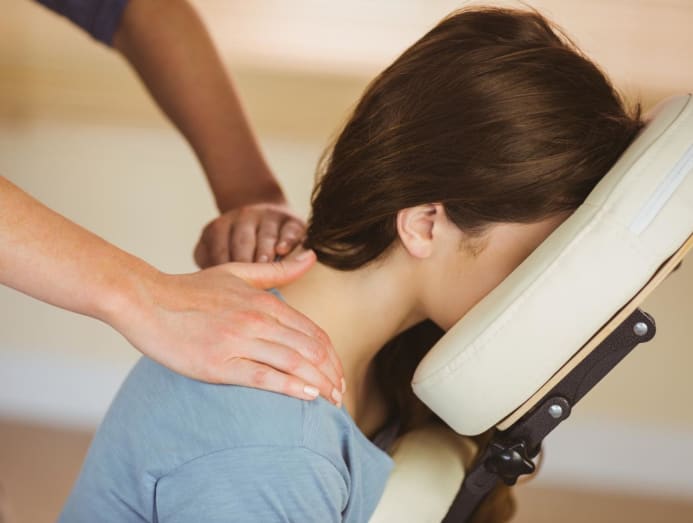
According to Dr Ramani, pain during massage (not just the neck) is not always a good sign. “Severe pain, especially during hard or deep massage, may make a person faint as severe pain can trigger the parasympathetic nervous system as mentioned earlier. I have seen patients who fainted during a very painful massage.”
And if you love the satisfying crack of the neck during a Thai massage, you'd be wise to reconsider. “A major twisting of the neck may possibly constrict the carotid artery,” said Dr Ramani, and you could also tap out.
According to Asst Prof Yeo, you should seek medical attention if you experience fainting spells as "there are many other causes of fainting other than CSH, some of which may be life threatening".







